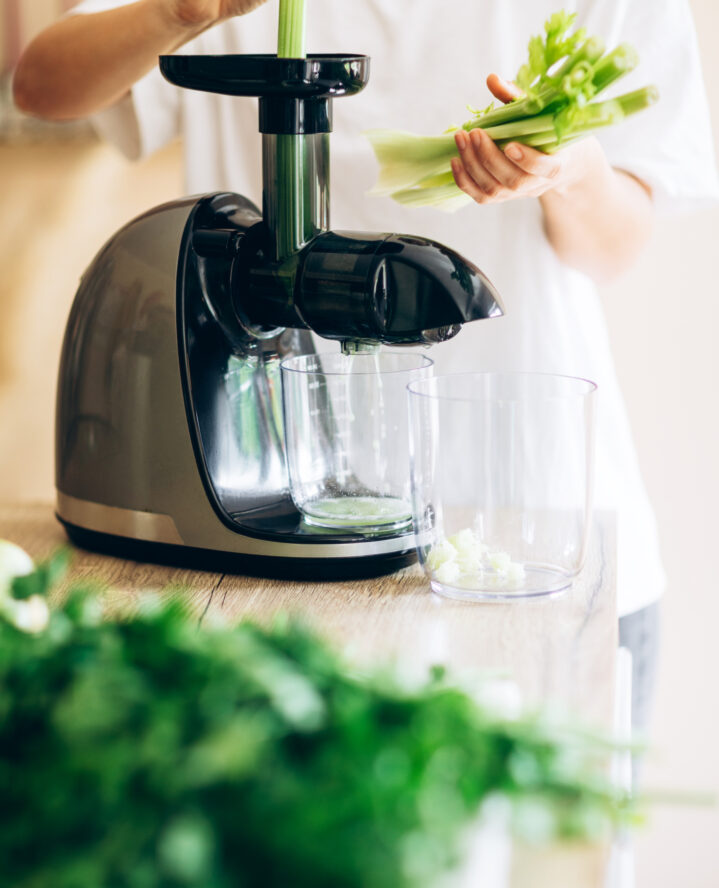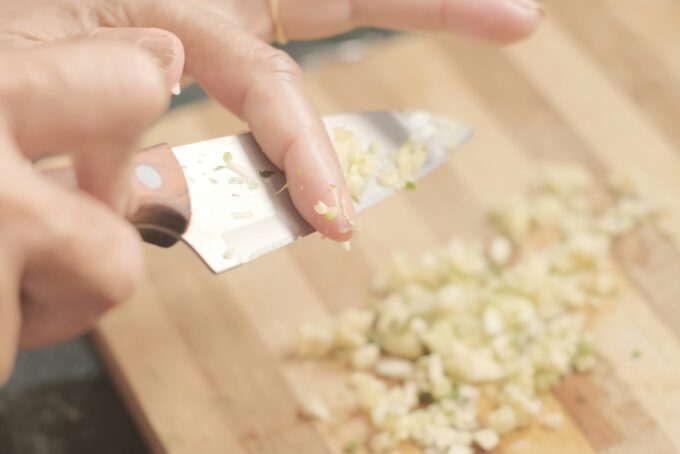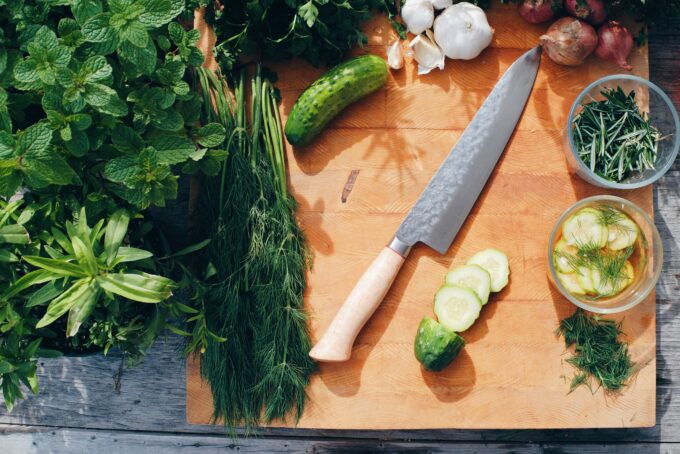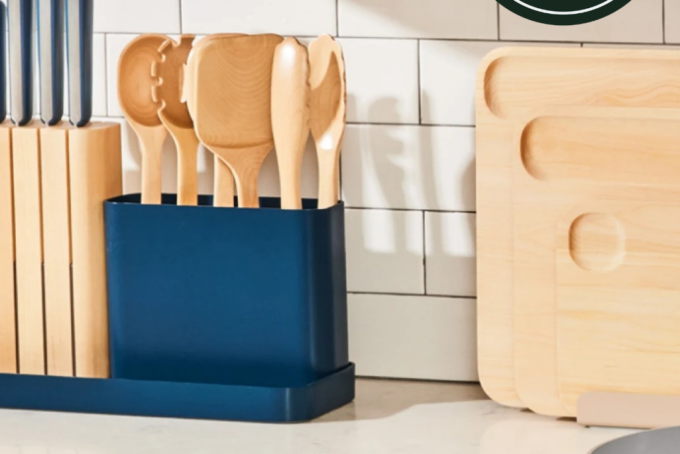According to the CDC, a whopping 90% of Americans don’t eat enough fruits and vegetables. But fortunately, there’s a quick and easy way around that—juicers. Juicers can break down fruits and veggies, separating the pulp, skins, and seeds to provide a smooth, nutrient-rich juice.
Juicing is a great way to increase your fruit and veggie intake, especially if you have picky eaters in your household. But before you rush out to buy one for yourself, it’s important to understand that not all juicers are created equal.
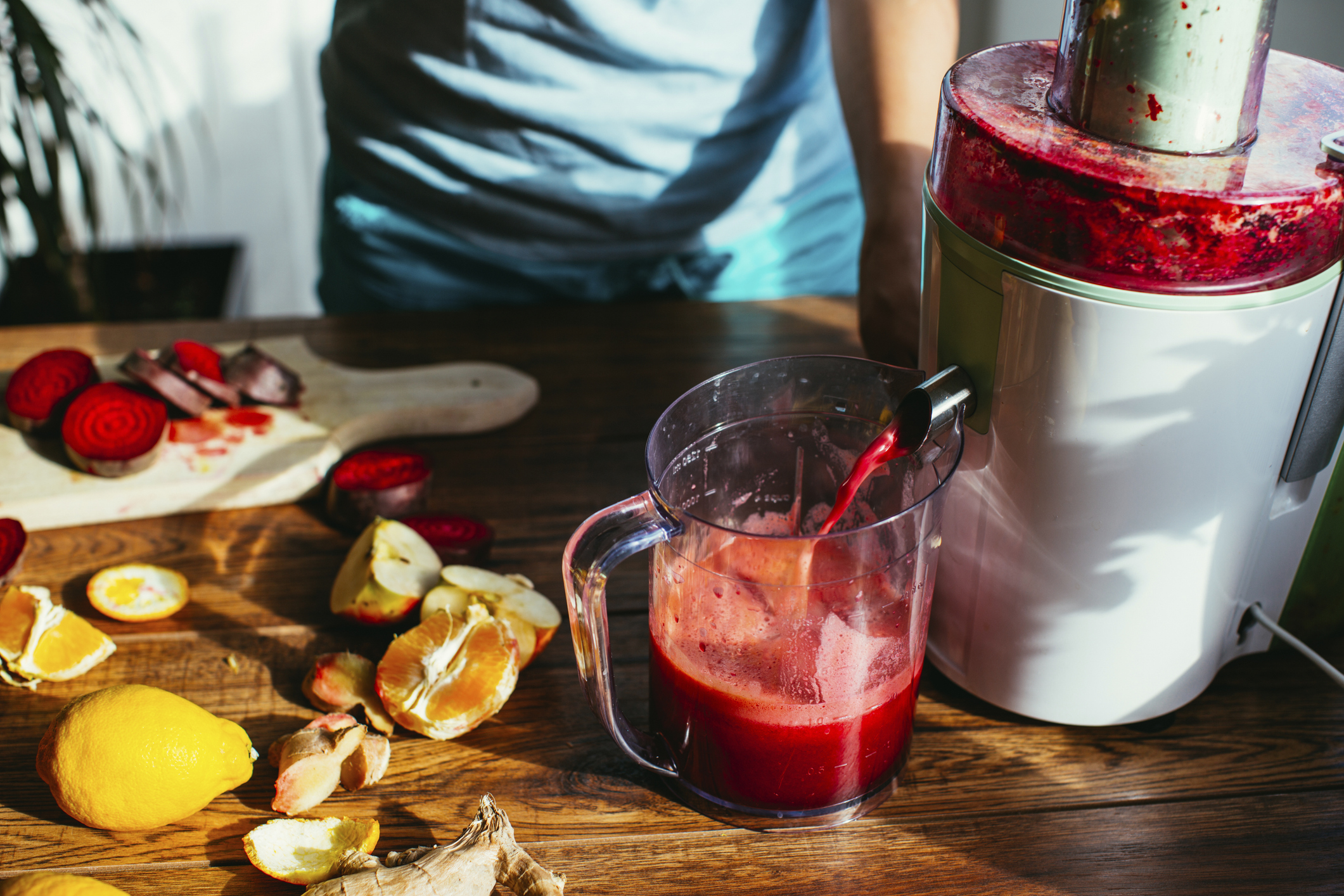
Types of Juicers
When shopping for a juicer, you might be surprised to find that there are many different types to choose from. To help you make an informed decision on which juicer is best for your home, here are the most common types of juicers and how they work:
Centrifugal Juicers
Centrifugal juicers are the most common type of juicing machine. They’re best known for having super fast spinning blades that quickly extract juice from all types of fruits and vegetables.
However, it’s important to note that because they’re so fast and efficient, they tend to produce heat, which can alter the nutritional value of the juice.
Masticating Juicers (Cold Press Juicers)
Masticating juicers aren’t as fast as centrifugal juicers. Instead, they slowly crush fruits and veggies to squeeze out their juices. Because they operate a lot slower, they don’t produce heat. This preserves more enzymes and nutrients, resulting in higher-quality juice with a longer shelf life.
Citrus Juicers
As its name suggests, a citrus juicer is specially designed to squeeze citrus fruits — i.e. grapefruits, oranges, lemons, etc. Since they’re specifically made for citrus, they do an excellent job at extracting juice from citrus halves with very little effort.
Triturating Juicers (Twin-Gear Juicers)
Triturating juicers are not as commonly known as most other juicing machines, but they’re just as important. These advanced juicers use powerful twin gears to squeeze produce, netting the highest juice yield and nutrient retention. Because they’re so powerful, triturating juicers are ideal for juicing tough and fibrous produce.
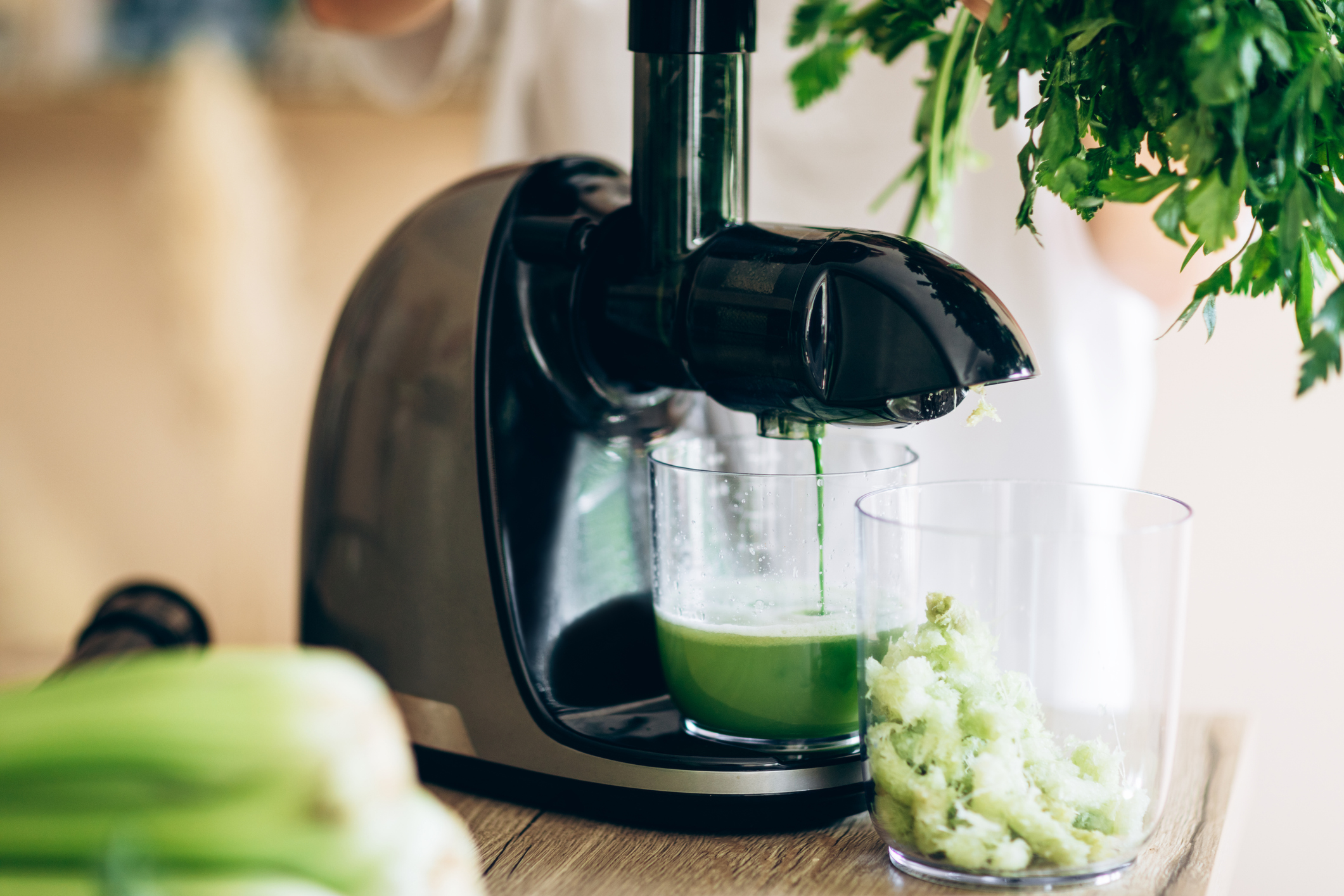
Selecting the Right Juicer for Your Home
Now that you know more about the most common types of juicers and what they do, you can begin shopping for your own. But because there are so many options available, it can be challenging to determine which one is right for you. To help, here are five factors to think about when shopping for a juicer:
Nutrient Retention
If you value the nutritional value of juicing, a masticating or triturating juicer is likely your best bet. As previously mentioned, these machines operate at slower speeds, reducing heat generation and oxidation, so that you receive the full nutritional value of your juices.
Budget
Fortunately, juicers come in a wide range of prices to fit every budget. Masticating and triturating juicers are typically on the pricier side due to their advanced technology and higher juice yield. So if affordability is your priority, centrifugal juicers are a budget-friendly option.
Juice Yield
While faster, centrifugal juicers don’t yield as much juice when compared to masticating or triturating juicers. On average, masticating or triturating juicers are designed to extract a lot of juice from fibrous fruits and vegetables, making them the better option if this is your priority.
Ease of Cleaning
Juicing can be messy, so it’s important to consider just how much cleaning you can expect to do before buying your juicer. Centrifugal juicing machines typically have more parts to clean, thus requiring more effort. On the other hand, masticating and triturating juicing machines often have fewer parts so cleaning them is quick and easy.
Noise Level
Centrifugal juicers can be quite noisy due to their high-speed spinning blades. If noise is a concern for you, a masticating or triturating juicer can operate more quietly.
popular posts
Kitchen
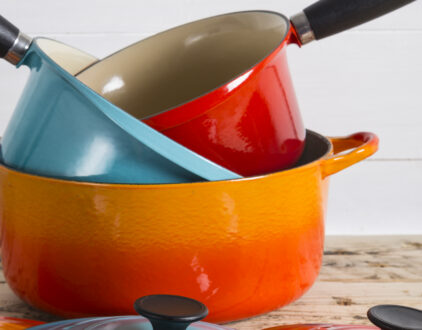
Is Your Le Creuset Stained or Sticky? Here's How To Fix It
by Kelsey Marie | June 4, 2025

A Guide To Picking Kitchen Hardware That Elevates Your Space
by Camilla Amadi | March 19, 2024

Everything We Loved Most From Anthropologie’s Bistro Tile Collection
by Camryn Dilger | April 16, 2024
Spaces
Whether it’s luxury or ease, every area of your home should be as fabulous and unique as you.

Now Is the Time To Shop Bed Bath & Beyond's Best Labor Day Deals
by Melody Beuzelin | August 25, 2023
FOLLOW ALONG ON INSTAGRAM
#homeandtexture
Find us on social for more home inspiration where culture, personal style, and sophisticated shopping intersect to help you create a home where you love to live.
